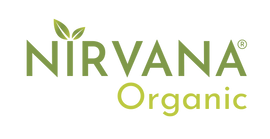Honey has been used as a natural sweetener and medicinal ingredient for more than 8,000 years. Honey is now available in both raw and processed forms, as traditionally made by hard-working bees.
Raw honey contains natural nutrients, while processed honey is pasteurized, heating that improves shelf life but reduces nutritional value. Even many commercial honey brands add sugar or corn syrup, diminishing honey’s natural benefits.
This is something that Ayurveda has been a believer of for a very long time—that honey is not the same as white sugar, and is now being recognized across the world.
The Process of Honey Production
Bees create a golden, sticky substance called honey eating the nectar of flowering plants. Honey is stored in the hive as food in times of utter scarcity.
How Bees Make Honey:
-
Nectar from flowers is collected on bees' tongues that are tube-shaped and stored in a specialized stomach called the crop.
-
Enzymes in the crop combine with the nectar to alter the nectar’s composition and pH to make it tougher to feed on.
-
At the hive, the nectar is passed, mouth to mouth, the bees breaking it down further.
-
Finally, the honeycomb is filled with nectar, which is then thickened into honey.
What is Raw Honey?
Honey is raw honey when it is in its purest form, taken directly from the honeycomb. The wax and bee parts are only removed from it, filtering it out. The raw wild forest honey has not been pasteurized, keeping its natural nutrients and enzymes intact.
Raw Honey vs. Regular Honey: Key Differences
Filtered and pasteurized is normal honey, whereas raw honey is dispatched directly from honeycomb to jar without pasteurization. Cloudy or white in color raw honey remains unprocessed. If raw honey is not properly transported and handled, its lifespan is extremely short. Processed honey is more durable since it has additives.
The most significant difference is that raw honey contains no added sugar or artificial sweeteners while processed honey could have added sugars such as fructose corn syrup.
Reasons to Switch to Raw Forest Honey
1. High in Antioxidants
As compared to processed honey, raw honey has antioxidants that help combat free radicals and prevent cell damage.
2. Contains Bee Pollen
To remove honey pollen, honey goes through a process, but there is still bee pollen in raw honey. It contains:
-
Vitamin A & C (powerful antioxidants)
-
Calcium & Magnesium (for stronger bones)
3. Rich in Bee Propolis
Bees don’t only make honey, they also produce propolis, a sort of greenish-brown resin that coats the hive. Raw honey contains this natural compound and it offers:
-
Anti-inflammatory & antifungal properties
-
Vitamin B, Vitamin C, potassium, and magnesium
4. May Help Lower Cholesterol
A 2006 study published in the Journal of the Federation of American Societies for Experimental Biology discovered that mice eating honey had lower levels of cholesterol than mice on sugar.
5. Supports Digestive Health
The antimicrobial properties of raw honey help achieve a speedy recovery from vomiting and diarrhea. An experiment on infants with gastroenteritis showed that those who were given honey recovered faster than those who were not.
How to Identify and Buy Raw Honey
Supermarket honey is often processed and contains additives. Raw honey is harder to find but worth the effort. Here’s how to recognize real raw honey:
-
Cloudy & thick texture (contains pollen and propolis)
-
Crystallizes over time (a sign of purity)
-
No added sugar or preservatives
For the best quality, look for raw, unfiltered himalaya honey from trusted sources.















